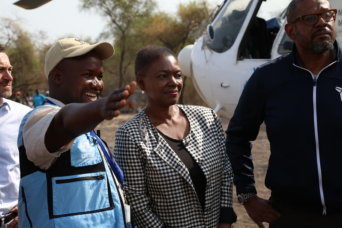- About
- Topics
- Picks
- Audio
- Story
- In-Depth
- Opinion
- News
- Donate
- Signup for our newsletterOur Editors' Best Picks.Send
Read, Debate: Engage.
| topic: | Humanitarian Aid |
|---|---|
| editor: | Bob Koigi |
In a world increasingly buffeted by conflicts, climate change and disease outbreaks in ways never experienced before, victims of these calamities have had to live with the aftermaths – only founding solace and refuge through humanitarian workers who have sacrificed their lives to ameliorate the suffering of the world’s most vulnerable, who are estimated to be more than 200 million.
But as these disasters escalate, as do the threats facing millions of humanitarian workers including kidnappings, torture and death. In this year alone, close to 400 aid workers have been attacked with 126 of them at the epicentre of conflicts, dying while trying to save lives. Kidnapping is equally metamorphosing into a dangerous business as militants collaborate with criminal gangs to execute abductions for ransom or to control aid delivery. In 2018, data indicates that 130 humanitarian workers were kidnapped compared to 45 in 2017.
These occurrences are making it hard for these workers to do their job as parties to conflicts blatantly disregard the Red Cross and UN emblems and increasingly violate the International Humanitarian Law that seeks to protect those offering relief support.
And as the World Humanitarian Day is commemorated this week to pay homage to tens of thousands of aid workers who have given up their lives to protect others, while celebrating those who continue to surmount numerous odds to carry on the noble initiative, it is timely that this year’s event has chosen to celebrate women who make up more than 40 percent of all global aid workers. Indeed they have had to contend with sexual harassment, discrimination and sexism but their resolve has remained unphased.
As the world now stares at an even tougher future, with continued conflicts in Syria and Yemen, to cyclic hunger in the Horn of Africa, and emerging diseases, the number of those affected by such crises is set to rise, with aid workers being their last resort. The collective duty of the international community is to champion for even more protection and recognition of these workers because their safety guarantees the lives of millions of innocent victims trapped in calamities they have no control over.
